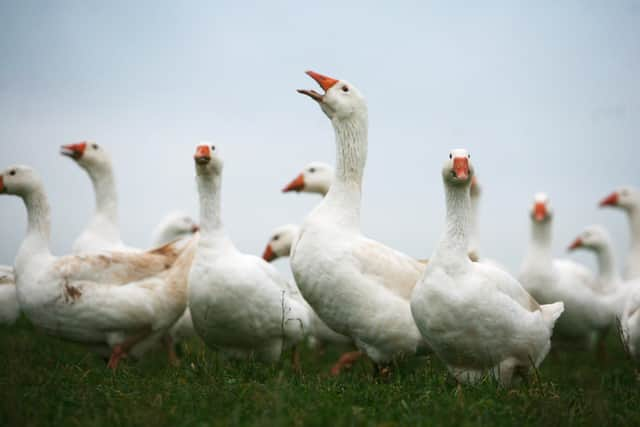'Final warning' on climate change can lead us to a beautiful, life-affirming and compassionate world – Philip Lymbery
Looked at through the lens of the four seasons, our society is currently living through summer, an endless party, a time of limitless consumption as if the planet has no boundaries. Yet, the browning leaves of autumn are starting to show as anxiety grows over the climate crisis.
The world’s leading climate scientists delivered what was described as a “final warning” recently, as rising greenhouse gas emissions push the world to the brink of irrevocable damage that only swift and drastic action can avert. Carry on as we are, and we face a perpetual winter. Covid gave us a collective taste of that future, showing how society is vulnerable, fragile, not to be taken for granted.
Advertisement
Hide AdAdvertisement
Hide AdWe urgently need a new spring. The good news is there are beautiful, life-affirming, compassionate solutions to help us get there. But with time running out, we need to focus on where we can have the most impact. So, what's responsible for about a third of greenhouse gas emissions, more than any other sector? It’s food.
Animal agriculture alone is responsible for more greenhouse gas emissions than all the world’s planes, trains and cars put together. Yet, when governments come together to discuss climate, food barely gets a mention. It has hardly figured in climate talks, rendering previous COP meetings a copout. It’s the elephant in the room.
Addressing that elephant means facing up to the prospect that as things stand, over-consumption of meat alone could trigger catastrophic climate change. Which is why we need a food system based on capturing carbon, working in harmony with Mother Nature, and respecting animal welfare.
All of which can be done with nature-friendly farming, something desperately needed if we are to address the climate emergency and save the future of our food. Soils are vital for growing food and store carbon that would otherwise be heating the atmosphere. As soil degrades and disappears, so it releases that carbon.
Current industrial agriculture, with chemicals and cages, is undermining our soils and heating the planet. Unless we change course, the United Nations has warned we have just 60 years left before the world’s soils are gone. As consumers, we can help by choosing to eat more plants, and less but better meat, ensuring that any we do eat comes from ‘better’ farming methods – more regenerative, nature-friendly food systems such as pasture-fed, free range or organic.


Done right, these can rewild the soil by returning animals to the land regeneratively as part of mixed rotational farms where they can help capture carbon underground by turbo-boosting soil fertility. Farmed animals can get to live their best lives, experiencing the joy of life.
Governments too need to step up and show leadership by developing a UN global agreement to end climate and nature-damaging industrial agriculture, transforming food systems so they protect the future for coming generations. We are beyond the 11th hour. We have received our ‘final warning’. For animals, people and the planet, the clock is ticking. There is no time to lose. What we do now will define the next 1,000 years.
Philip Lymbery is chief executive of Compassion in World Farming, a former UN Food Systems Champion and an award-winning author. His latest book is Sixty Harvests Left. He’s on Twitter @philip_ciwf
Comments
Want to join the conversation? Please or to comment on this article.
